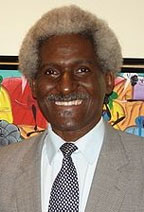WASHINGTON/CARACAS, (Reuters) – The United States has revoked the visa of the Venezuelan ambassador to Washington in apparent retaliation for Venezuela’s rejection of the U.S. envoy to Caracas, a diplomat said yesterday.
The diplomat, who spoke on condition of anonymity, declined to provide further details. A State Department spokesman earlier declined to comment on the rift between Caracas and the United States.
Venezuela is the fifth biggest supplier of oil for the United States, after Canada, Saudi Arabia, Mexico and Nigeria.
In a briefing earlier yesterday, another State Department spokesman repeated the US position that Venezuela could suffer consequences because of its objection to President Barack Obama’s selection of Larry Palmer to serve as Washington’s ambassador to Caracas.
The spokesman declined to specify any consequences. He also said that, as far as he knew, Venezuela’s ambassador to the United States was out of the country.

Washington and Caracas have been sharply at odds over Palmer’s appointment since August, when Venezuelan President Hugo Chavez said the envoy would not be allowed to take up his post because Palmer had criticized Chavez’s leftist government.
Venezuelan state media quoted Deputy Foreign Minister Temir Porras as confirming the revocation of the U.S. visa of Ambassador Bernardo Alvarez Herrera.
U.S.-Venezuelan lawyer Eva Golinger, who is a close ally of Chavez and an unofficial spokeswoman for his government, also was quoted as confirming the measure.
“USA revokes the visa of the Venezuelan ambassador in Washington in revenge for the decision on Larry Palmer,” she was quoted as saying. “Such cynicism and hypocrisy.”
In a speech on Tuesday, Chavez had reiterated his opposition to Palmer’s appointment.
“We have denied permission to this aspiring ambassador and now the U.S. government threatens us with reprisals,” he said.
“Well, they will do what they want but that man is not coming here as ambassador. Anyone who comes here as an ambassador has to show respect. This is a country that must be respected.”
Palmer triggered outrage in the Chavez administration when he told a U.S. senator that morale was low in the Venezuelan military and that there were clear ties between members of the country’s government and FARC rebels in neighbouring Colombia.




